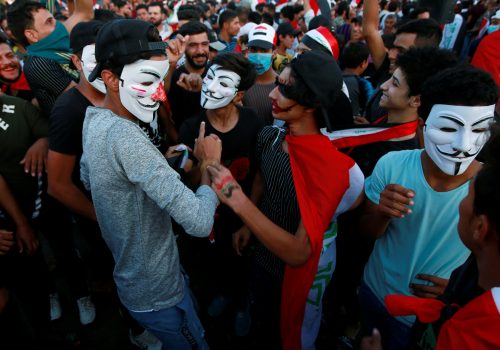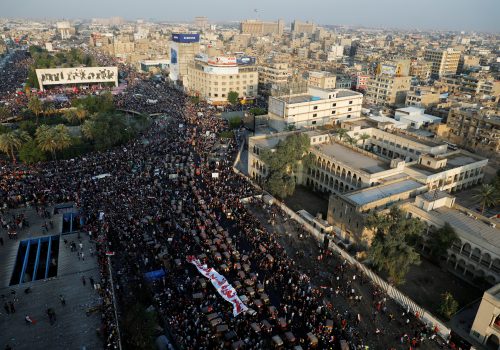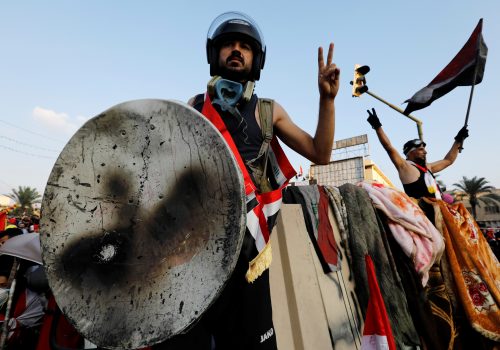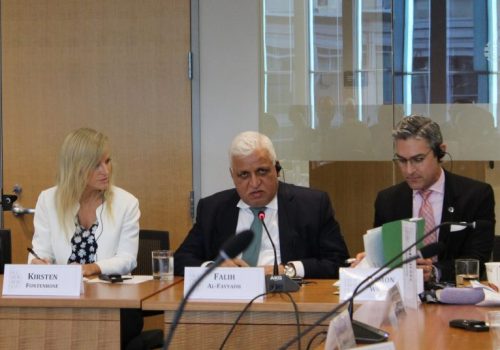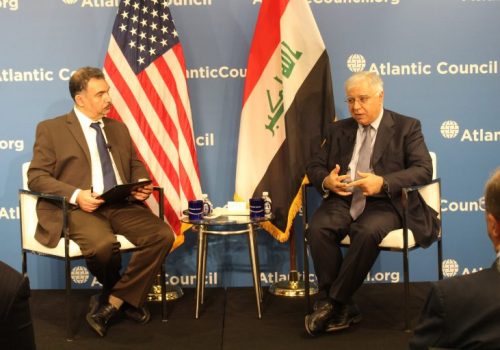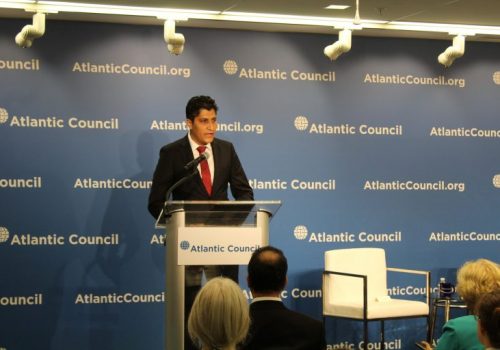On November 1, the Atlantic Council’s Iraq Initiative and Global Energy Center hosted a conversation on Iraq’s political and energy outlook featuring Iraq Foundation Co-Founder and President Rend al-Rahim, US Department of State Principal Deputy Assistant Secretary, Bureau of Near Eastern Affairs Joey Hood, and Crescent Petroleum CEO Majid Jafar. Atlantic Council President and CEO Fred Kempe gave welcome remarks and Atlantic Council Iraq Initiative Director Abbas Kadhim moderated.
Event summary
Moderator Abbas Kadhim spoke with Rend al-Rahim about the protests’ trajectory. Al-Rahim stated that while the protests began with frustration over the lack of jobs and services, they transformed during early October into calls for resignations and accountability, before finally becoming a call for an overhaul of the political system.
This was caused in part by the repression of Iraq’s security forces and the associated numerous fatalities over the past month. Al-Rahim expressed concern at what she perceived as a lack of government response addressing the protesters’ demands, suggesting that protests may continue and grow more violent. She also expressed concern about militias settling scores amid the chaos of the protests. When asked about whether the potential resignation of Iraqi Prime Minister Adel Abdul-Mahdi, al-Rahim stated that his replacement would need to have a bloc of support and come from a different system, or else we will get back into this same situation again.
To this end, she recommended an evolutionary approach involving electoral reform, new elections, and constitutional reform. Al-Rahim was also asked about Sunni perceptions of the protests. She noted that they had already protested in the 2000s and had been brutally crushed and accused of being Ba’ath or ISIS supporters, so they learned a lesson and want to avoid more accusations of this nature.
Abbas Kadhim asked Joey Hood about his interpretation of the US government’s position regarding the protests. He urged nonviolence on all sides and emphasized that peaceful protests are a positive way for citizens to express their views to the government. Additionally, he condemned Iranian involvement in the unrest, particularly Iranian General Qassem Soleimani’s arrival in Iraq to speak with political leaders. Hood argued that what the protesters want is a strong and sovereign state free of foreign influence. He said the United States stands ready to help if President Barham Salih has a vision for a US role in introducing or implementing political reform.
Abbas Kadhim asked Majid Jafar if he could speak to Iraq’s oil production and overall energy outlook. Jafar expressed strong optimism about the prospects for oil production, saying that Iraq has achieved 5 million barrels of oil per day in spite of numerous challenges including ISIS, disputes over resource sharing, and poor infrastructure. He added that the creation of emergency councils for investment and development would be a solution to boost the country’s economic outlook, which he emphasized must be solved in addition to the political issues.
Related Content
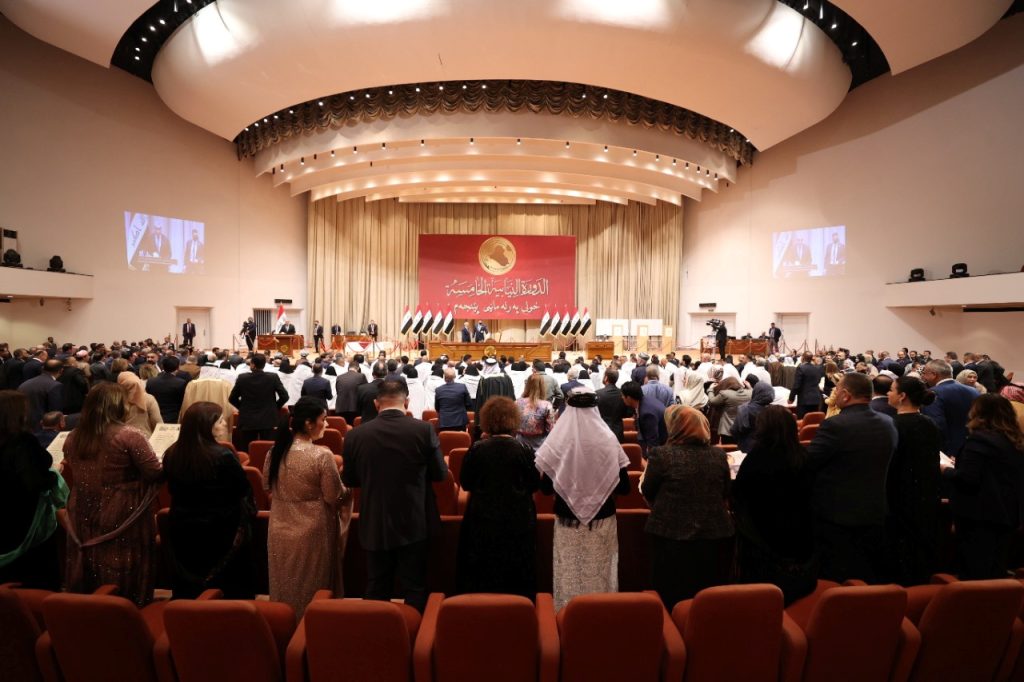
The Iraq Initiative provides transatlantic and regional policy makers with unique perspectives and analysis on the ongoing challenges and opportunities facing Iraq as the country tries to build an inclusive political system, attract economic investment, and encourage a vibrant civil society.
